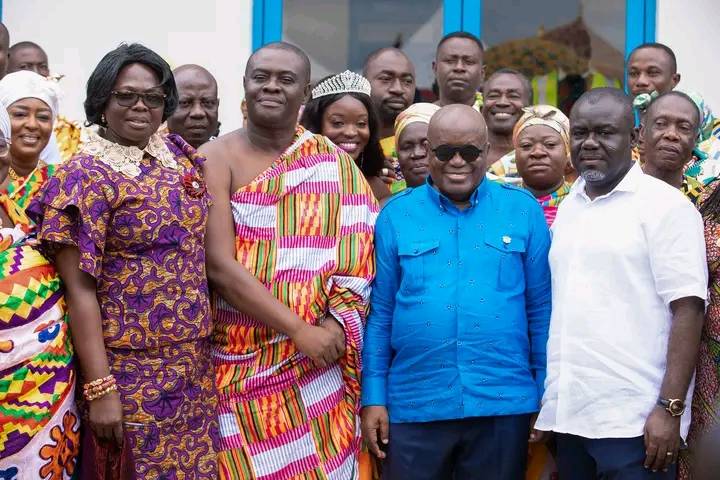Nana Addo Dankwa Akufo-Addo is the current President of Ghana, having been in office since January 2017. His political career spans over 40 years, during which he has held several key positions in the country’s government, including Attorney General and Minister of Justice, Minister of Foreign Affairs, and most recently, the Leader of the Opposition.
Born on March 29, 1944, in Kyebi, Ghana, Akufo-Addo attended both primary and secondary school in Ghana before moving to the United Kingdom to continue his education. He attended Oxford University, where he studied law and obtained a degree in economics. Upon completing his studies, Akufo-Addo returned to Ghana and began practicing law.
In 1979, Akufo-Addo became the General Secretary of the People’s Movement for Freedom and Justice (PMFJ), a political group that was established in opposition to the military government in power at the time. He was instrumental in organizing protests against the military government, which eventually led to a transition to a democratic government in 1992.
Akufo-Addo became a Member of Parliament in 1997, representing the Abuakwa South constituency. During his time as an MP, he served on numerous committees, including the Committee on Constitutional, Legal and Parliamentary Affairs, and the Foreign Affairs Committee. He was also the Deputy Minority Leader in Parliament from 1997 to 2001.
In 2001, Akufo-Addo was appointed as the Attorney General and Minister of Justice under President John Kufuor. He served in this position for four years and was widely praised for his work in fighting corruption and promoting good governance.
In 2006, Akufo-Addo was appointed as the Minister of Foreign Affairs, a position he held until 2007. During his tenure as Foreign Minister, he focused on strengthening Ghana’s diplomatic ties with other countries, particularly those within Africa.
In 2008, Akufo-Addo contested the presidential elections on the ticket of the New Patriotic Party (NPP), the party he had been a member of since the early 1990s. Although he lost the election to the then-incumbent President John Atta Mills, he accepted the results and played a leading role in helping to ensure a peaceful transition of power.
Akufo-Addo ran for the presidency again in 2012, but once again he was defeated, this time by John Mahama, who had taken over from President Atta Mills after his untimely death. Akufo-Addo contested the election results, alleging irregularities, but ultimately his challenge was unsuccessful.
Despite these setbacks, Akufo-Addo remained committed to politics and continued to champion the cause of good governance, democracy, and economic growth in Ghana. In 2014, he was elected as the flagbearer of the NPP, and he subsequently became the Leader of the Opposition in Parliament.
In 2016, Akufo-Addo stood for the presidency for the third time, this time against incumbent John Mahama. He campaigned on a platform of change, promising to restore Ghana’s economic prosperity, tackle corruption, and create jobs for the youth. In the end, he won the election with over 53% of the vote, becoming the fifth President of the Fourth Republic of Ghana.
Since taking office, Akufo-Addo has implemented a number of policies aimed at transforming Ghana’s economy and improving the lives of its people. He has launched the Free Senior High School policy, which provides an opportunity for every Ghanaian child to receive secondary education free of charge. He has also established the One District One Factory Program, aimed at creating jobs and promoting industrialization across the country.
Akufo-Addo has also taken bold steps to tackle corruption in Ghana. He established the Office of the Special Prosecutor to investigate and prosecute anyone found to have engaged in corrupt practices, and he has initiated a number of reforms to strengthen Ghana’s public financial management systems.
Under Akufo-Addo’s leadership, Ghana has seen significant improvements in its economic growth, which has averaged around 7% in recent years. He has attracted substantial foreign investment to the country, particularly in the areas of infrastructure and technology.
Overall, Akufo-Addo’s political life has been marked by a deep commitment to democracy, good governance, and economic growth. He has played a critical role in Ghana’s transition to democracy, and his policies have contributed to the country’s economic progress and development. As he continues to lead Ghana in the coming years, it is likely that he will remain a key figure in Africa’s political landscape.




No comments yet
Be the first to share your thoughts!